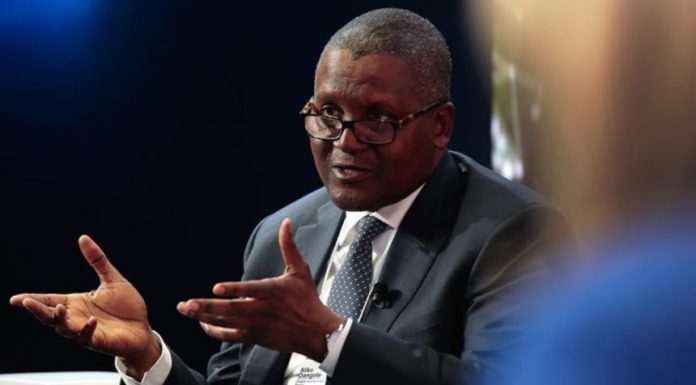News
Dangote proposes construction of Nigeria’s mega deep seaport

Africa’s richest man, Aliko Dangote, is moving forward with plans to construct a world-class seaport in Ogun State, aimed at enhancing Nigeria’s export capabilities — particularly for products like liquefied natural gas (LNG).
According to a report by Bloomberg on Monday, Dangote revealed in an exclusive interview that his conglomerate recently submitted an application to Nigerian authorities to build what he described as “the biggest, deepest port in Nigeria” at Olokola, a coastal area in Ogun.
The proposed Olokola seaport is expected to significantly bolster Dangote Group’s export strategy while opening up new channels for international trade.
READ ALSO: Why NNPC refineries may never work again – Dangote
The free trade zone was initially considered as the host of Mr Dangote’s mega oil refinery and petrochemical plant, now situated on the outskirts of Lagos, before an impasse with the government thwarted the plan.
The port is conceived to connect the Dangote group’s logistics and export operations in Lagos, including Lekki Deep Sea Port, through which it currently ships petroleum products and fertilisers overseas.
“It’s not that we want to do everything by ourselves, but I think doing this will encourage other entrepreneurs to come into it,” Bloomberg quoted Mr Dangote as saying.
Betting on LNG exports requires the laying of pipelines from the Niger Delta, all the way to Lagos, an ambitious pursuit intended to overtake Nigeria LNG Limited (NLNG) as Africa’s biggest LNG exporter.
“We want to do a major project to bring more gas than what NLNG is doing today,” said Devakumar Edwin, a vice president of the group.
“We know where there is a lot of gas, so run a pipeline all through and then bring it to the shore,” he added.
The group exports fertiliser to the US, Brazil, Mexico, India, and recently disclosed an aspiration to set up a fertiliser plant in Ethiopia, which will help Africa’s second most populous nation develop production capacity.
The ambition is, nevertheless, far bigger than that, given plans to topple Qatar as the foremost manufacturer of urea in the next 40 months and to also make Africa self-sufficient in fertiliser within the same time frame.
The 650,000 barrel-per-day refinery, the continent’s largest, began operations in 2024 after years of construction delays.
Construction of storage tanks to hold a minimum of 1.6 million litres of petrol and diesel in Namibia is in the works.
Mr Dangote hopes to list the petrochemical business on the local stock exchange in Lagos this year and the refinery on the bourse next year.






















